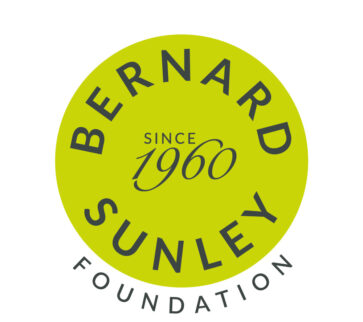
Aims/priorities: The aim of the foundation is to help raise the quality of life in England and Wales, particularly for the young, disadvantaged and older people.
The funding is for one-off capital projects (not running costs) such as new buildings, major refurbishments, transport and equipment. Rented premises are expected to have a lease of at least 10 years. Applications for transport should be for new, not used, vehicles. Applications for equipment should be for single, high cost (£5,000 and over), durable items.
In cases where grants are made, the projects are expected to be self-financing thereafter.
Community
The Trustees consider applications for two main themes under this category with the aim of creating cohesive and positive communities.
Firstly, the Trustees are strong believers that every community needs a focus on which to build the cohesion of that community. They are therefore advocates of the 'village hall', particularly in isolated rural areas where facilities are often very limited. Support is available for church halls, churches or other buildings providing there is strong evidence that a high proportion of secular activities (ie no connection at all with religion or spirituality) accessible to the whole community take place. Conservation and heritage projects for halls/churches are not generally supported.
Secondly, the Trustees aim to provide practical activities that help young people attain their full potential and take their place within society as responsible citizens. To this end, they support Youth Activity Centres, uniformed youth groups and youth clubs. They also help those who are young ex-offenders, 'at risk' or in danger of exclusion.
The types of application that will be considered are as follows:
New build, refurbishment and improvements of village halls, scout huts, youth clubs, community centres and similar. This often includes access for the disabled, modernising kitchens, new storage space and updating toilets in line with Health and Safety regulations and the Disability Discrimination Act.
Education
The Trustees focus on assisting those with special educational and learning needs. Support is available for educational nature and farm visitor centres but not for projects in mainstream schools or universities.
The types of application that will be considered are as follows:
- Building projects.
- Specialist new transport.
Health
The Trustees' interests focus on building projects for residential care housing and treatment centres, and the provision of major equipment (not consumables) to enhance medical treatment and care.
The types of application that will be considered are as follows:
- Improvements to hospices and treatment clinics.
- Residential care for older people and those with special needs.
- New equipment not available through the NHS.
- Research medical equipment.
- Specialist new transport
Social Welfare
Applications for capital projects are considered by Trustees ranging from residential housing for the homeless to 'day centres' providing support, training and education facilities.
Trustees also support the welfare needs of those who serve or have served in the Armed Forces and their families, particularly ex-service men and women with health and mental issues resulting from their service to the Crown. The Emergency Services and their families are also considered in this category.
The types of application that will be considered are as follows:
- New build and refurbishment of residential premises for rehabilitation and the relief of homelessness, and accommodation for young people 'at risk', and emergency centres which do not qualify for statutory funding.
- 'Move on' support facilities.
- Day care/drop-in-centres.
Applications for transport should be for new, not used, vehicles. Applications for equipment should be for single, high cost (£5,000 and over) and durable items.
Who can apply? Charities registered with the Charity Commission in England and Wales can apply.
Applications will also be considered from organisations that have 'accepted' status, such as churches, schools, scout and guide groups, or 'exempt' status, such as housing associations, friendly societies including social housing providers, Co-operative Societies, Community Benefit Societies and Registered Societies.
Applications are considered from all areas of England and Wales, particularly where rural and isolated communities are concerned.
Grant amount: Although applicants may specify how much funding they need, the Trustees decide the level of grant to award based on the information contained within the application. The minimum grant available is £1,000. The majority (roughly 80%) of grants awarded are under £5,000. Grants exceeding £25,000 are exceptional and are typically awarded to major capital projects.
Application process: An online application form is available to complete at the Bernard Sunley Foundation website.
Deadline: There are no formal application deadlines. Applications are accepted throughout the year and are reviewed in order of receipt.
Contact information: Enquiries - Tel: 020 3036 0090, Email: office@bernardsunley.org
Website address: www.bernardsunley.org
